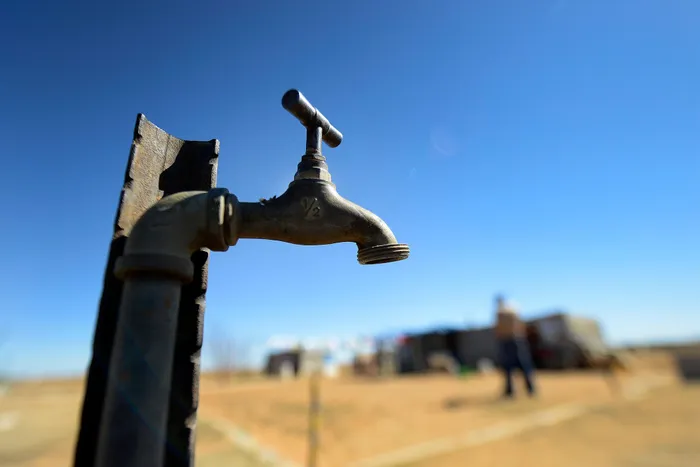What Cape Town's revised water and sanitation fees mean for residents

Cape Town’s water tariffs for residential users operate on a tier-based system
Image: Paballo Thekiso
As Cape Town residents and businesses face the challenges posed by new water and sanitation tariffs that took effect from July 1, 2025, we look a a comprehensive breakdown of how these changes impact households and businesses alike.
According to the City of Cape Town, these revised fees are aimed at funding essential services and supporting record infrastructure investment across communities. The City further claims it would ensure long-term water security for all.
The overall increase for water and sanitation tariffs is 6.8%. Most miscellaneous and consumptive tariffs include 15% VAT, in line with the Value-Added Tax Act No. 89 of 1991.
Residential water tariffs
It's worth noting that Cape Town’s water tariffs for residential users operate on a tier-based system. This means that the price per kilolitre (kl), where 1 kl equals 1,000 litres, rises depending on how much is used and as household consumption increases.
For the 2025/26 period, Step 1 (0 to 6 kl) is priced at R24.32 per kl. This block is free for registered indigent households.
Step 2 (more than 6 to 10.5 kl) is R33.42 per kl, also free for indigent households.
Step 3 (more than 10.5 to 35 kl) costs R49.96 per kl, and is again free for indigent households.
Step 4 (above 35 kl) is the most expensive at R96.37 per kl, but indigent households are also exempt from paying this step.
The City defines “Domestic Full” as stand-alone houses, while “Domestic Cluster” refers to flats, sectional title units, cluster developments, and gated communities.
Residential Sanitation Tariffs
Sanitation tariffs are also tiered and charged according to usage. It covers the removal and treatment of wastewater. These charges, for both Domestic Full and Domestic Cluster users, also include VAT.
For 2025/26, Step 1 (0 to 4.2 kl) is R17.78 per kl, and free for indigent households.
Step 2 (more than 4.2 to 7.35 kl) is R24.43 per kl, also free for indigent households.
Step 3 (more than 7.35 to 24.5 kl) costs R37.72 per kl, with no charge to indigent users.
Step 4 (above 24.5 to 35 kl) is R62.04 per kl, which is also free for indigent households.
Note that sanitation charges apply up to a maximum of 35 kl per month.
Fixed Basic Delivery Charge
In addition to usage-based charges, the City applies a fixed basic delivery fee to domestic households. The most common connection size, which is 15 mm, will cost R87.29 per month. However, registered indigent households are exempt from paying this monthly charge.
Commercial and Industrial Tariffs
Commercial and industrial users will also see updated rates under Level 0 tariffs (including VAT) for 2025/26. The water tariff is R43.54 per kl, and the standard sanitation charge is R32.55 per kl.
Specific tariffs for schools, sports bodies, religious institutions, and charitable organisations are encouraged to visit the City’s website for detailed rates.
Why the Tariffs?
According to the City, these adjustments are necessary to maintain critical services and support “future-proofing” efforts, particularly around water and energy security. The cost of delivering water services remains relatively stable—even during periods when dam levels are high. Currently, around 40% of Cape Town’s registered indigent households receive free water.
The City urges residents to cut back on water use as the most effective way to lower household expenses. Monitoring and adjusting consumption habits can make a significant difference.
Get your news on the go, click here to join the Cape Argus News WhatsApp channel.
Cape Argus
Related Topics: